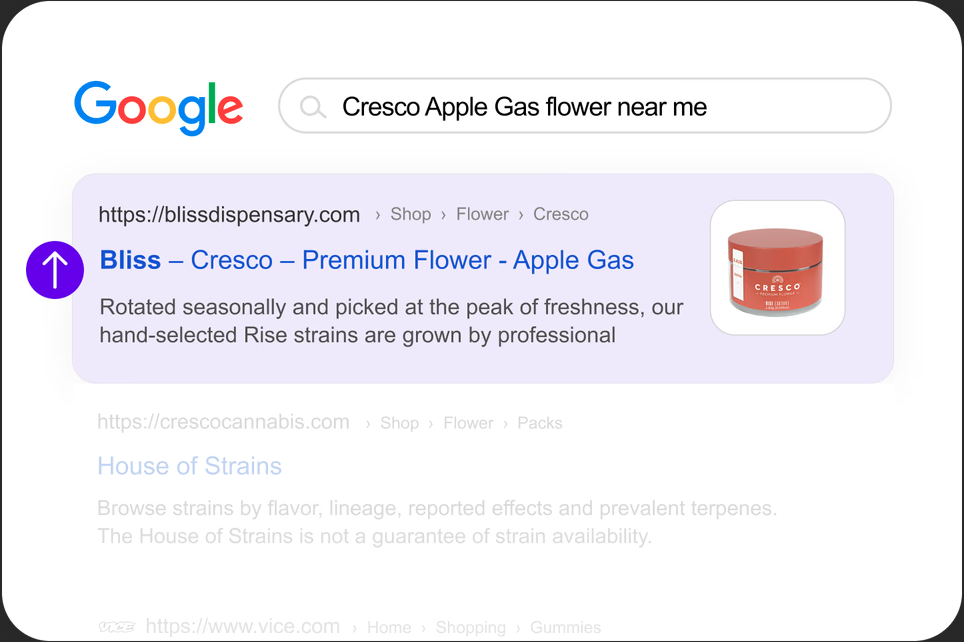Every website needs a voice. That’s what blogs are all about. When people visit and interact with your website, they want to see that personal side of the business beyond the catchy web design and graphics. They want to connect to your business and what it offers. One of the best ways to reveal that while maintaining digital marketing campaigns is through a blog.
A blog is an online journal that reveals instructions, information, or tips in reverse. This means that the latest posts appear first, and much older posts appear the latest. Effective blogging for business means that your website is regularly updated with content to fulfill your brand objectives.
Thus, you can say blogs are either formal or informal articles written to showcase your expertise on a certain topic. One of the goals of blogging is to get your website found. When you create a blog post, you’ve added an opportunity for your website to appear on search engine result pages (SERPs). Thus, search engine optimization for blog posts can be achieved.
Blogs are also important in converting your visitors into customers. If your articles are engaging and fun, they could generate leads and sales for your e-commerce business. On the plus side, blogs are a long-term investment in your digital marketing. No matter how long an article has been posted, it can still gain traffic and generate conversions for your website.
This article will explore the importance of blogging for business and digital marketing.
What Is the Purpose of a Blog?
Blogs are unique to each brand and website, as they provide different functionality to them. However, their core purpose includes:
1. Improve Your Website SEO
One of the reasons to start a blog is that it can optimize your website for SEO. When drafting a blog post, you can include keywords and backlinks to improve your web page rankings on SERPs.
Thus, you can optimize blog post for SEO by incorporating some keywords and a call-to-action that will get people interested in your products and services.
2. Improve Your Credibility
People want to patronize a brand that is credible and reliable. Creating blog topics about your brand shows visitors that you’re an expert in your niche.
Thus, you must ensure it is factually correct when writing your article. You should also take your time to proofread and edit any errors in your article. It goes a long way in developing your credibility.
3. Helps Visitors Understand Your Unique Offerings
Blogging helps mere visitors to understand what your business is all about. You can incorporate your products and service while offering high-quality content to your audience. This plants an image into the mind of your audience.
However, it is essential to spread those products and services meagerly throughout your blog – as web visitors may get disinterested if they see too many product ads.
4. Helps Develop A Unique Brand Voice
Another reason why blogging is important is that it develops your brand voice. People are not only looking to purchase your service when they land on your page. They also want to connect and interact with your brand.
When you consistently post articles maintaining a style guide, your visitors will be able to identify your brand voice.
5. Extend Your Marketing Offerings
Having a blog expands your marketing offerings. For instance, when you publish an article, you can share it on your social media pages for more engagement. You can also create a weekly newsletter you can share with email subscribers.
Blog on digital marketing really helps you achieve more with your online campaigns.
Benefits of Blogging
You don’t have to own a business to engage in personal blogging. It comes with several benefits. Some of these benefits include:
● It helps hone your writing skill. Blogging consistently helps improve your writing skills in ways you never imagined. It will help you pay attention to your usage of words, punctuations, style, tense, structure, and flow.
● It serves as a journal of your progress. Blogging, for some people, is an emotional outlet to fully express themselves in ways talking to someone wouldn’t. For others, it’s a journal and reminder of a specific period in their lives. Blogging about your personal experience can be quite therapeutic and may help you overcome mental issues.
● It gives you more confidence. When you blog and receive excellent feedback and critique for your work, it encourages you to become better. You’d become more confident to write more.
● Potential to make money off of it. Personal blogging can open up opportunities to make money from it via freelance gigs. You can develop yourself as a copywriter, B2B writer, or content writer for any niche you take up.
● You become more organized. Effective blogging allows you to gather your thoughts and examine your standpoint on certain socio-political issues.
● You become more knowledgeable. Blogging opens up the window to learn, unlearn, and relearn new things about life.
If you ever wondered, “Do people still blog?” Yes, they do. And looking at these benefits, you should too.
Is Blogging Good for Business?
Effective blogging is essential in smashing your brand objectives as fast as possible. If pulled off correctly, the digital marketing efforts of your website will yield massive results. However, the key lies in your consistency.
You have to curate high-quality, engaging articles and instructional guides that your audience will help nurture, grow, and convert your visitors into customers. More so, blogging sets you apart from your rivals.
Is blogging good for business? Absolutely.

Benefits of Blogging for Business
In our previous section, we discussed the benefits of blogging personally. How does it play out for businesses? What are its benefits?
● Increase traffic. Effective blogging for businesses will increase your website’s daily and monthly traffic. According to statistics from HubSpot, a website with an active blog has 55% more visitors than those who do not.
● Gain new customers. Besides generating traffic to your website, blogging allows your brand to gain new customers. People are always interested in engaging content. When you keep publishing content about a subject matter, it will influence their buying habits.
● Build trust. One of the ways you can build trust with your customers is by effective blogging. When you post content regularly, they subconsciously see your brand as reliable and trustworthy.
● Reveal what you can do. You can show how experienced your brand is through blogging. It acts as a form of portfolio for your customers, as you have the opportunity of posting images alongside quality content.
● Build your network. One of the ways to stand out and thrive in a sea of competition is through blogging. Consistent blogging helps you to grow a community based on your niche. Your brand becomes the talk of the digital space when the niche is mentioned.
● Improve your SERPs ranking. Do blog posts help SEO? Yes. Frequent blogging gives you more opportunities for your website to rank higher in SERPs. All you have to do is optimize your blog pages for specific keywords.
All of these benefits are why blogging is important for business. If you haven’t started blogging for your brand, you should.
Why Is Blogging Important for SEO?
Effective blogging gives your brand more opportunities to stand out from your competition and rank higher on SERPs. How? You can optimize each article for specific keywords that Google can provide to answer people’s queries.
You can create ‘How to’ guides and tips to address a specific issue your potential customers may be looking for. The best way to pull it off is to incorporate on-page optimization for your blog posts. Does blogging increase SEO for your business? Definitely.
Optimize Blog Post for SEO
How do you optimize blog post for SEO and attract more visitors to your website? Practice these tips:
● Carry out keyword research. You need to conduct keyword research to know what your potential audience is looking for. You can come up with some of them, but you need additional guidance to effectively blog. Keyword research tools include Ahrefs, Ubersuggest, SEMrush, Google Keyword Planner, SECockpit, Moz, KWFinder, KeywordTool, etc.
● Write an interesting blog title. After researching the keywords, you need to pen an interesting blog title. It must not be over the top. Come up with a blog title while incorporating the main keywords in it. You can use the SERP Snippet Optimization Tool to reveal what your blog post will look like during SERPs.
● Link to other pages on your website. While writing an article, you should link to other web pages on your website. It creates a seamless relationship between your web pages. It increases the likelihood of your readers sharing your content and other blogs, giving you a backlink.
● Structure your blog. Google considers the structure and flow of your blog as a factor to rank it higher. Thus, you should ensure fluidity in your article. Your blog should contain headings, subheadings, bullet points, and numbered lists.
● Write authentic content. Google frowns at plagiarism. You should ensure that your content is not only high-quality but original. You can use Grammarly to scan your content for grammar and plagiarism before publishing them.
● Include images. Your article should contain a couple of images to make them more fun to read.
● Add a meta description. A meta description is a short description of what your article is all about. Most readers pay attention to them before clicking on any link. You should include a meta description to any article.
SEO for blog posts can be achievable when you practice these tips.
Social Media vs Blogging
When it comes to digital marketing, employers are often confused about which strategy is efficient between social media and blogging. Those strategies are distinct but are crucial to your marketing campaigns.
What are their differences?
Social Media
Blogging
Short-form posts
Long-form posts
Sharing interactive content to attract social media users
Publishing content on your website to rank higher on SERPs and
Content is posted on social media platforms
Content is posted on WordPress or the blog section of your website.
Posts are event-driven
Long lasting relevance
Takes less time to create social media content
Takes a longer time to create blog posts.
Both of these digital marketing strategies are crucial for businesses. Thus, you should take advantage of them.

Optimize Blog Content for Search Engines
How do you optimize blog post for SEO? It’s pretty easy:
● Carry out keyword research.
● Create an engaging blog title.
● Write high-quality, original content.
● Include images in your content.
● Add internal links to your other web pages.
● Structure your articles with headings, subheadings, bullet points, and numbered lists.
These noteworthy tips are bound to optimize SEO for blog posts.
Conclusion
Effective blogging is good for business, and now you know why. Take advantage of the tips above to improve your digital marketing and gain massive results.




